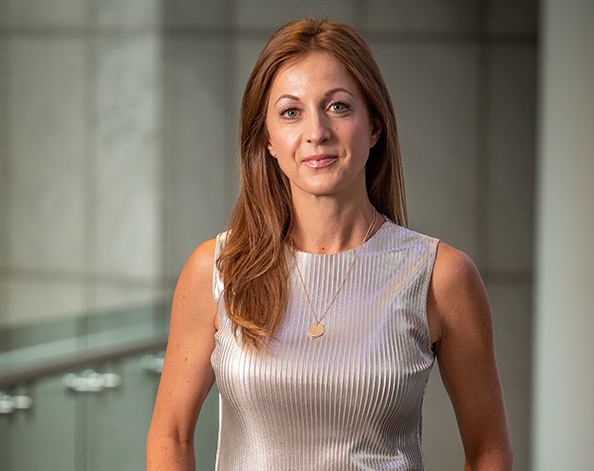Get Focus insights straight to your inbox
Social proof is a term psychologists use to describe our natural tendency to conform to established behaviours as a way of being liked or accepted. Too often, we walk the line even when the benefits of doing things differently should be obvious. This inherently conservative dynamic is one of the factors that has for decades held the workplace in a status quo.
Of course, there have been gains along the way, and some organisations have fostered a more progressive mindset than others. But compared to the advances made over the past few decades in understanding human psychology – and what drives levels of motivation and performance – workplaces have adapted remarkably slowly.
The pandemic, and its consequent restrictions on working from the office, compelled organisations and employees to break free from traditional workplace practices in search of better ones. Many haven’t looked back.
A time for trust
Lockdowns left many employers with no option but to trust that their employees would get things done without line managers peering over their shoulders.
The results of this forced social experiment have been mixed. Some leaders report drop-offs in productivity; others have touted gains. The disparity makes sense. Cultures that were already built on trust saw it deepen, while those defined by control and compliance faltered in remoteness.
When offices are safe again, leaders will need to decide on the extent to which flexibility and remote working should be embraced as a matter of choice rather than necessity. The path they choose will have far-reaching implications for the kind of culture they wish to build: an ethos characterised by tight regulation and constraint, or one more characterised by autonomy and flexibility with discipline.
“I think the art of leadership is going to change. It's going to require creating contexts where people can be trusted and given the autonomy and freedom to operate and deliver,” says Nicola Tager, head of careers at Investec.
It’s Tager’s view that while aspiring to such an environment poses its own challenges, it’s one worth striving for: empowered employees are more engaged and creative, and leaders who are freed from the burden of micromanagement can spend more time thinking strategically.
READ MORE: As people return to the office, have we missed a chance to become more human?

I think the art of leadership is going to change. It's going to require creating contexts where people can be trusted and given the autonomy and freedom to operate and deliver.
The hybrid benefits
Higher levels of trust between employer and employee are manifesting in hybrid working arrangements that inject flexibility into a once-rigid relationship. It’s a setup that makes sense for businesses on several fronts:
- Fewer employees in the office reduces the fixed cost base, freeing up resources for needle-moving innovations and initiatives.
- Businesses that give their employees the freedom to integrate work and home life will attract a wider pool of talent, including the highly-skilled digital natives they’ll need to thrive in the 21st century.
- It communicates a powerful message to staff that their employer acknowledges the demands of their lives outside of work, which builds loyalty and breeds productivity; ultimately feeding through to the organisation’s bottom line.
“The ability to think differently about how, where and when we work creates amazing possibilities,” says Lesley-Anne Gatter, head of people at Investec.
That said, businesses will need to be purposeful, considered and deliberate in designing hybrid work environments. There is much to gain and some risk in selecting modalities of participation and how we come to enable work, deliver on performance and build those relationships critical for progression.
“The important thing is for organisations to be aware of the different forms of workplace participation available to them, and then to pick their modality and offer as much as possible around that option,” says Gatter.

The ability to think differently about how, where and when we work creates amazing possibilities.
In-person still vital
“Remaining connected through technology allowed staff in different geographic locations, irrespective of their rank, to face the pandemic together. I believe that created a heightened sense of inclusion, connectedness and belonging despite the lack of physical contact,” says Zandile Nkhata, belonging, inclusion and diversity lead at Investec.
Nkhata’s assertion that the pandemic was a leveller of sorts will no doubt resonate with those companies who were able to rely on a culture of trust and whose communication systems were in good shape when the pandemic struck. But for those organisations whose systems and cultures were ill-suited to remote work, the experience would have been quite different, exposing weaknesses in digital maturity and the shortcomings of overly autocratic organisational structures.

But while digital communication technologies clearly have a key role to play in fostering a sense of belonging, we also need to acknowledge their limitations. Video often distorts or hides body language, for example, crimping our ability to effectively convey ideas or emotions.
Somewhat counterintuitively, face-to-face engagements are set to improve in quality off the back of the pandemic. To start, fewer opportunities to meet should increase attendee preparedness and urgency. That could translate into fewer directionless meetings. There’s also a renewed impetus from businesses to create office space geared for collaboration and creativity.
And if businesses can internalise aspects of belonging and inclusion built up through the pandemic, then face-to-face engagements should be less stifled by personas and pretences as employees feel more confident about bringing their whole selves to work.

I believe that [technology] created a heightened sense of inclusion, connectedness and belonging despite the lack of physical contact.
Gig worker efficiency
“Many people who lost their jobs during the pandemic have become sole proprietors, selling their labour into what’s known as the gig economy.”
So says Marc Kahn, Investec's global head of people and organisational development. The trend towards less formal employment was already entrenched before the pandemic, but it accelerated during the early days of lockdown as businesses laid off permanent staff to reduce fixed costs.
Yet increasing numbers of people are now choosing freelance or shorter-term contact work over the permanent kind, drawn to the autonomy and flexibility of this lifestyle. Businesses who are structured to dip into these pools of talent will find themselves at a distinct advantage.
“In the future, people will cluster together in sensible ways, disbanding only to reconnect on another gig. The result is a very agile value chain loosely coordinated by a leadership function that has enough control to manage risk,” Kahn continues.
Apart from the potential for reduced overheads, the gig economy should allow companies to benefit from greater agility and access to specialised skills that were previously out of reach. That’s because they can bring in and pay for talent only on those projects where it’s immediately required. It also becomes easier to contract talent from other geographies, although this can come at the cost of tax and regulatory challenges.
To be sure, the phenomenon of social proof has not disappeared. But the pandemic has given us a precious opportunity to revisit what’s considered normal in the workplace. There’s no excuse to let that ship sail by.




